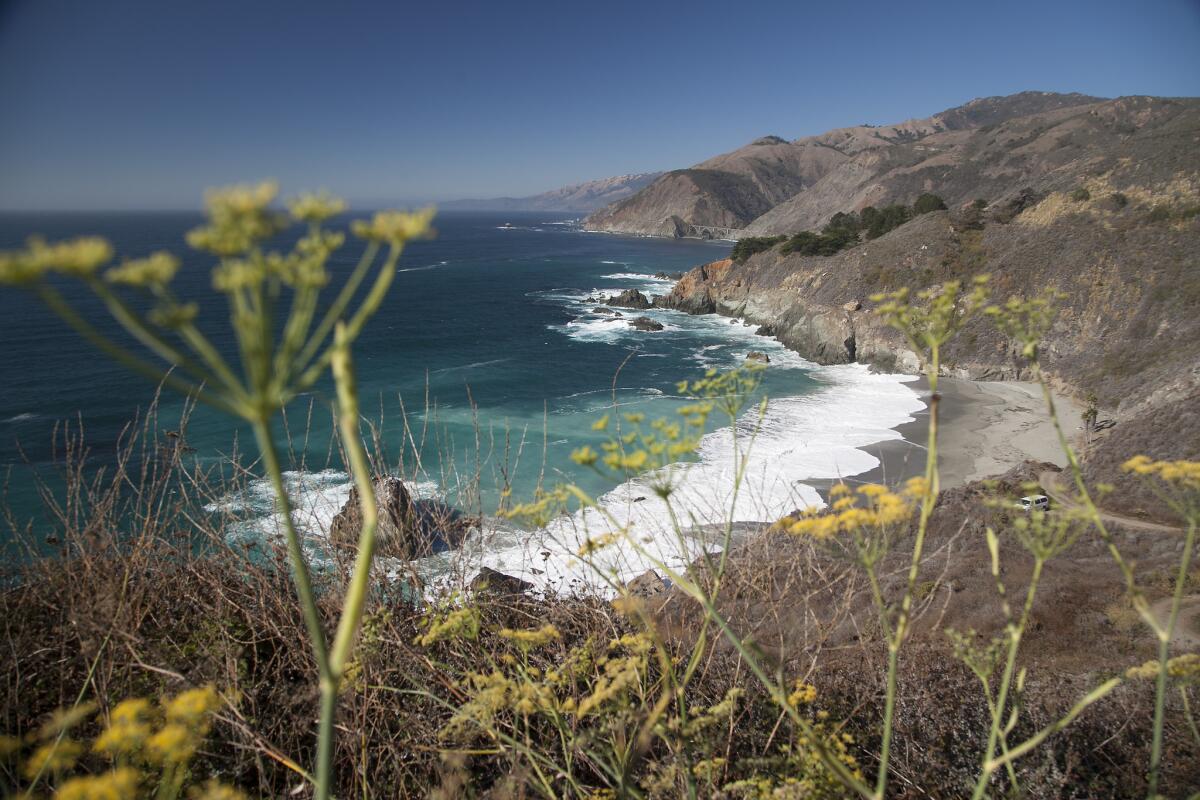Opinion: Coastal Commission ought to be open about why it wants a new director

Environmentalists fear that pro-development advocates are behind an effort to oust California Coastal Commission Executive Director Charles Lester.
The California Coastal Commission is in the midst of a political controversy of its own making, and how the 12 voting members of the board act come Wednesday will send a clear signal about whether they are capable of living up to their mandate to protect the coast.
The issue is the status of Executive Director Charles Lester, whom the board notified last month that it intended to kick out of the job heâs held since 2011. Lester invoked his right to a public hearing, which comes Wednesday in Morro Bay during the boardâs monthly meeting. The Timesâ editorial board weighed in today, telling the commission members that unless they âcan present sound, defensible, professional reasons for dumping him, they should let him stay in his job and get on with the peopleâs business.â
They also should make that call publicly. While Lester has the right to the public hearing, which is likely to be packed with supporters, the board has the option to hold its own discussion of his status and its vote in public or in a private session.
Given the high profile nature of the issue and Lesterâs request for a public airing, the commission should not retreat behind closed doors after hearing from Lester and the public. For that matter, Lester - in the same spirit of openness - should waive his right to privacy and release his previous performance evaluations. If thereâs a paper trail of unresolved problems, letâs see it.
The overwhelming analysis of whatâs going on is that pro-development folks are orchestrating efforts to oust Lester, generally seen as a quieter and less politically savvy leader than his predecessor, Peter Douglas, who was a potent and shrewd defender of the coast.
A different personality, yes, but so far there has been no public evidence that Lester has performed poorly. He has drawn a range of support from environmental groups, political figures and, most notably, 35 former commission members and 153 current staffers â which accounts for all but a handful of Lesterâs employees. Youâd think if he was such a professional failure that he needs to go, the staff wouldnât be so fast to support him.
Of course, any commission has the right to appoint a top executive of its choosing. But the executive has to be someone who is in synch with the commissionâs core mission. Itâs worth reminding what that mission is, as set out on the California Coastal Act, in which the Legislature declared:
- (a) That the California coastal zone is a distinct and valuable natural resource of vital and enduring interest to all the people and exists as a delicately balanced ecosystem.
- (b) That the permanent protection of the stateâs natural and scenic resources is a paramount concern to present and future residents of the state and nation.
- (c) That to promote the public safety, health, and welfare, and to protect public and private property, wildlife, marine fisheries, and other ocean resources, and the natural environment, it is necessary to protect the ecological balance of the coastal zone and prevent its deterioration and destruction.
- (d) That existing developed uses, and future developments that are carefully planned and developed consistent with the policies of this division, are essential to the economic and social well-being of the people of this state and especially to working persons employed within the coastal zone.
Yes, the act mentions development, but clearly the focus is on protecting and preserving. So how has Lester worked against that mandate? Thatâs the argument the commission members need to make, and they need to do it publicly. If the commission is trying to replace a strong defender of the coast with someone who would be more accommodating to development projects, as the environmentalists suspect, then the members need to be above-board about it. And then suffer the political consequences - the Coastal Act arose more than 40 years ago from an initiative passed by California voters, who made it clear they prefer coastal conservation to development.
To move this discussion and vote behind closed doors would lead a reasonable Californian to wonder exactly what it is the commission has to hide.
Follow Scott Martelle on Twitter @smartelle.
More to Read
A cure for the common opinion
Get thought-provoking perspectives with our weekly newsletter.
You may occasionally receive promotional content from the Los Angeles Times.











